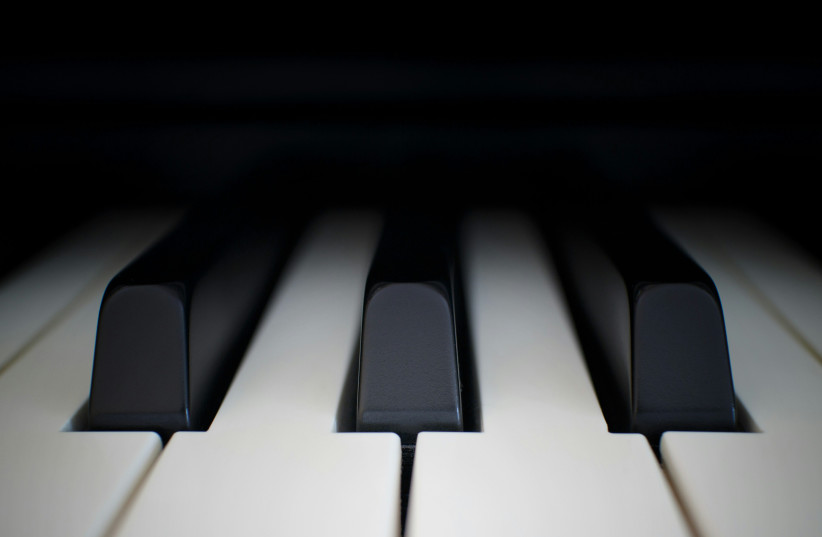At a time when Jewish pride seems to be in short supply, American singer and pianist Michael Feinstein’s delight in his Jewishness is, as George Gershwin would say, “here to stay.” Feinstein, 68, is considered the Sinatra of his generation, a masterful vocalist, pianist, and exponent of Gershwin and other contributors to the Great American Songbook, many of whom, he frequently points out, were Jews.
At a recent Carnegie Hall concert, Feinstein made repeated positive references to his own Jewishness and to that of the musicians whose work he performed. To some audience members, his Jewish pride was startling, given the amount of Jew-hatred in the world these days.
“I am horrified and saddened by the terrible things happening in the Middle East, Feinstein said in a telephone interview with the Magazine.
“Everybody I know is all praying for the same thing – peace. We all look at each other and wonder, how can we achieve that?”
Feinstein deeply believes in the power of music to unite, even in dark times.
“It’s important for everybody to express who we are,” he says. “Through art, we have the ability to create unity and see the sameness of everybody. The starting point is that we have to be who we really are.

“We have to recognize the mindfulness that fundamentally, we are the same. This gives us the freedom to express the artifice of our differences. Fundamentally, we all want the same thing in life. So it’s all about celebrating and being comfortable with the differences. And for me, making music always connects us more deeply than anything else can.”
Feinstein counts performances with the Israel Philharmonic Orchestra (IPO) among his greatest experiences.
“Performing with the Israel Philharmonic Orchestra was extraordinary,” Feinstein recalls, “because of the heritage of what that orchestra represents in the context of music history and the contribution of Jews to the world of music.”
Feinstein regrets the loss of arts education in American public schools. “It essentially stopped 30 or 40 years ago, and we are suffering for that,” he says. “We live in a red state/blue state divide in part because we lost the common bond of music bringing us together.”
Feinstein says that if you listen to ethnic music or folk music and take away the words, it all sounds the same. The minor key modality, the yearning, the longing, it all comes from the same place. Without that reminder of our common origins, we are less connected than we used to be.”
FEINSTEIN, WHOSE career began with an eight-year musical apprenticeship as the legendary Ira Gershwin’s assistant, has been performing for decades and still loves the magic of live performances.
“The energy vibrations of the audience completely affect the performance,” he says. “We feel a certain kind of vibration. It infuses our bodies and affects the way the music is performed. So music is interactive in the best sense of the word.
“The first thing we feel is the audience. I love interacting with the audience – maybe it’s because I had 10 years of playing in piano bars! It’s important to create the deepest connection possible.”
For Feinstein, the best music is far more than just notes on a page.
“When I play Gershwin,” he says, “I feel the essence of his soul.
“It’s inherent in his creations. There’s a part of him in everything he composed. Everyone tried to imitate him, but nobody had the divine spark that was in him.”
Gershwin’s music is “an expression of his life experience – a street kid in New York, raised in the Jewish faith,” he says. There’s a wonderful story about how his brother Ira’s wife was sitting with George in the Catskills while George was improvising for 30 or 40 minutes. When he stopped, he said, ‘Isn’t that wonderful!’ He was watching his own fingers as he played – he was like a bystander. He was beguiled by what he was watching himself play.
“[Gershwin] was very interested in spiritualism and New Age thought. He knew the music came from God.”
At the same time, Feinstein says, Gershwin would get annoyed if people thought the music came effortlessly to him. “I work damn hard on this music!” he would snarl.
Feinstein is less of a fan of today’s pop music. “Pop music always reflects what’s happening in the world,” he says, “and it’s a volatile time, a time of unrest and confusion.
“Some rap is comedic and brilliant. It’s people speaking their truth, but I say the only rap I like is Rhapsody in Blue.”
He is adamant that “the creative impulse will never die. The discipline of it, the refining of it is not as evident, certainly in what we hear these days.
“And yet I believe music will bring us back to a certain kind of salvation. That’s not Pollyanna. Music creates a vibration – emotional and spiritual.” To Feinstein, that’s the key to finding common ground.
“What I’m saying may sound like a cliché, but I believe it.”
